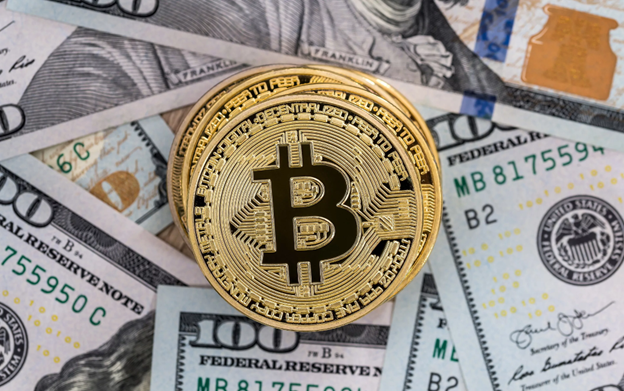Cryptocurrency has been a hot topic in recent years, with countries worldwide grappling with how to regulate and use this new technology. Venezuela has turned to Petro, a cryptocurrency backed by oil reserves, to combat economic instability.
For its part, China has been cracking down on cryptocurrency mining and trading. India and Russia have struggled to balance regulation and control of cryptocurrencies. At the same time, the United States has seen a rise in Bitcoin adoption and government efforts to gain more control over the market. In addition, if you are looking for free and easy-to-use website that helps people find an education company to start learning about investments, you may visit https://immediateturbo.com/.
Venezuela: The Petro and the Cryptographic Revolution
Venezuela has been known for its economic crisis for quite some time. Hyperinflation and economic instability have led to the search for alternative exchange methods. The answer to this crisis may lie in the Petro, a cryptocurrency backed by the country’s oil reserves.
The Petro was launched in 2018 by the Venezuelan government to circumvent US sanctions. It was hailed as the solution to the country’s economic problems. However, the Petro has been subject to controversy. The US government has labeled it a scam and has gone so far as to ban US citizens from investing in it.
Despite this, Petro has gained some traction within Venezuela. Some companies accept it, and even the government has started to pay some officials with cryptocurrency. It has led to increased use of cryptocurrencies in the country.
Petro has also led to a crypto revolution in Venezuela. The government has launched a campaign to educate its citizens about cryptocurrencies and blockchain technology. It has led to increased cryptocurrency and blockchain-related startups in the country.
China: Crackdown on Bitcoin Trading and Mining
China has always had a complicated relationship with cryptocurrencies. For one, it is home to some of the largest cryptocurrency mining farms in the world. On the other hand, the government has been cracking down on cryptocurrency trading and mining.
In 2021, China began to shut down cryptocurrency mining farms. It led to a massive drop in Bitcoin’s hash rate, the measure of computing power used to mine Bitcoin. This move was seen as a way for the Chinese government to gain control of the cryptocurrency market.
China has also been cracking down on cryptocurrency trading. In 2017, the government banned initial coin offerings (ICOs), a way for companies to raise funds through cryptocurrency. This move was seen as a way to protect investors from scams and fraud.
India: Changing Bans and Regulations
India has had a complicated relationship with cryptocurrencies. 2018 the Reserve Bank of India ( RBI ) banned banks from dealing with cryptocurrency-related businesses. It led to a drop in cryptocurrency trading in the country.
However, in 2020, the Supreme Court of India struck down the ban. This led to an increase in cryptocurrency trading in the country. However, the government has been working on new regulations for cryptocurrencies.
In 2021, the government proposed a bill to ban all private cryptocurrencies in the country. This move was seen as a way for the government to gain control of the cryptocurrency market.
Currently, India regulates the use of cryptocurrencies and, in turn, assigns the payment of taxes on crypto investments, these being the highest tariffs in terms of the country’s fiscal policy.
Russia: Cryptocurrencies in the Kremlin’s Crosshairs
Russia has been known for its strict stance on cryptocurrencies. The government has been working on regulations for cryptocurrencies for some time. In 2019, the government passed a law regulating cryptocurrencies in the country.
However, some in the cryptocurrency community considered the law too restrictive. The law requires cryptocurrency exchanges to register with the government and report all transactions to the government. This move was seen as a way for the Russian government to gain control of the cryptocurrency market.
In 2021, the Russian government proposed a new law banning all cryptocurrencies. This move was seen as a way for the government to gain even more control over the cryptocurrency market. However, the law has yet to become law, and there is still a lot of uncertainty surrounding the future of cryptocurrencies in Russia.
For 2023, Russia is preparing to evaluate the adoption of digital currencies after the financial movements that they managed to execute through these digital financial instruments during the economic blockade that it is going through due to the war.
United States: Bitcoin Adoption or Fight for Control?
The United States has always had a complicated relationship with cryptocurrencies. For one, it is home to some of the largest cryptocurrency exchanges in the world. On the other hand, the government has been working on regulating cryptocurrencies.
In 2021, the US government proposed a bill requiring all cryptocurrency transactions over $10,000 to be reported to the government. This move was seen as a way for the government to gain more control over the cryptocurrency market.
However, there has also been an increase in Bitcoin adoption in the country. Companies like Tesla and MicroStrategy have invested billions of dollars in Bitcoin. This has led to a rise in the price of Bitcoin and has brought more attention to cryptocurrencies.
The future of cryptocurrencies in the United States is still being determined. It needs to be clarified if the government will continue to try to gain market control or if cryptocurrencies will continue to gain ground in the country.
Conclusion
As the world becomes more connected and digital, the future of cryptocurrencies remains uncertain. While some countries have embraced this new technology, others are wary of its potential risks and have tried to regulate it strictly.
As the global conversation around cryptocurrency continues to evolve, it will be interesting to see how these different approaches play out and their impact on the future of finance.














